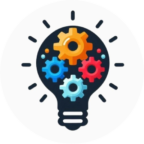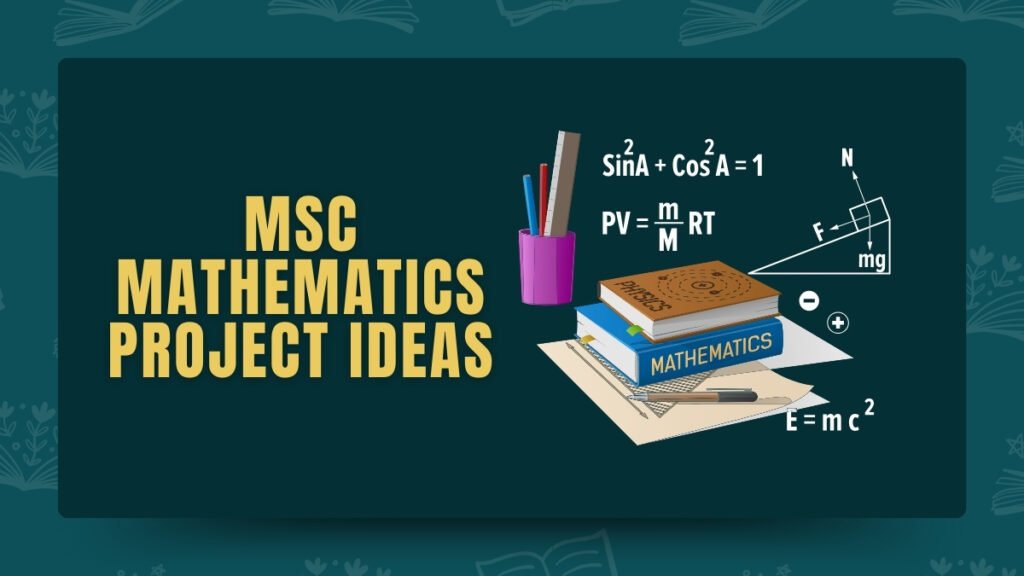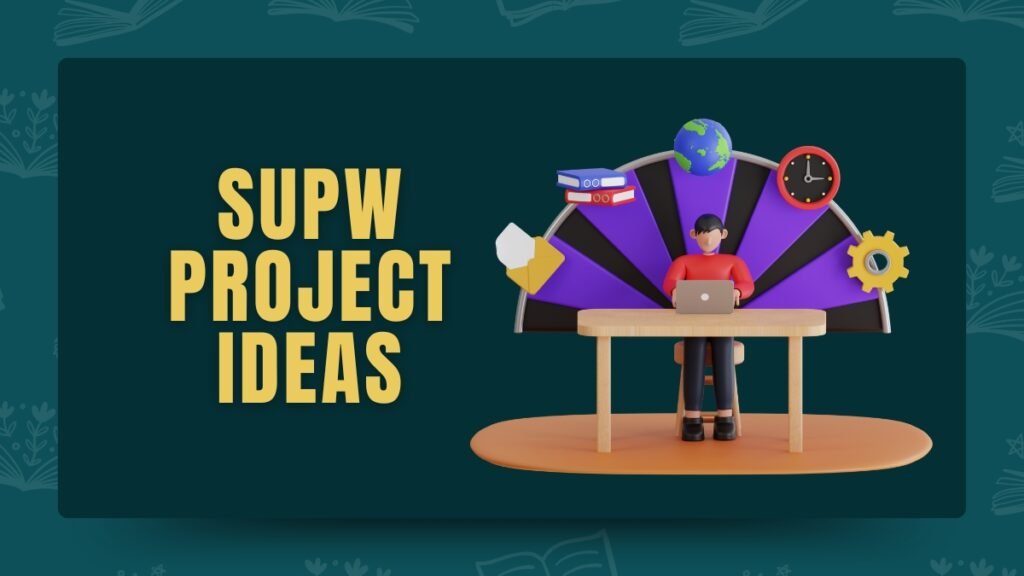Find simple and creative IB Personal Project ideas to inspire your work and help you meet IB requirements.
Did you know that over 67% of students find it hard to pick a topic for their IB Personal Project? Are you feeling stuck on what to choose? You’re not alone! Every year, thousands of IB students feel the same way. A survey of 500 IB schools even showed that students who start planning early are 3 times more likely to get higher grades.
Your Personal Project is a chance to dive into something you truly enjoy. Think about what excites you—whether it’s helping others, making art, solving problems, or exploring science.
The good news? Choosing a project doesn’t have to be difficult. In this blog, we’ll share fun ideas other students have tried and easy tips to help you pick a project that’s right for you.
Remember, the best projects aren’t always the biggest—they’re the ones that matter most to you. About 85% of successful projects come from students choosing topics they genuinely care about, not just what sounds impressive.
IB Personal Project Ideas PDF
What Is IB Personal Project?
The IB Personal Project is a major independent work that students complete in the final year (usually grade 10) of the International Baccalaureate Middle Years Programme (MYP). It’s like your first big solo mission in your academic journey.
Key Components
Here are the key parts of the IB Personal Project:
- Goal – What you want to achieve.
- Product – The final result you create.
- Process – The steps you take to complete the project.
- Reflection – Thinking about what worked and what you learned.
- Learning Outcomes – Skills and knowledge you want to gain.
- Global Context – How your project connects to real-world issues.
- Documentation – Keeping track of your progress.
- Supervisor – A teacher or mentor who guides you.
Why IB Personal Project Important?
Following are the major reasons behind the importance of IB project for students:
- Builds Skills – You improve thinking, communication, and problem-solving.
- Encourages Creativity – You use your creativity to solve problems.
- Promotes Independence – You manage the project on your own.
- Explores Interests – You work on something you care about.
- Prepares for the Future – It helps you develop useful life skills.
- Increases Awareness – You think about how your project connects to the world.
- Shows Achievement – It’s a key part of the IB program and can help you stand out.
IB Personal Project Ideas
Here are the most interesting Ib personal project ideas for students:
Technology & Engineering
- Build a mobile app or game
- Create a website for a local business or cause
- Design a robotics project
- Develop a smart home system
- Create a virtual reality experience
- Build a weather station using sensors
- Create a tech tutorial series
- Develop a coding course for beginners
- Design an IoT project (Internet of Things)
- Create a computer security guide
Arts & Design
- Paint or illustrate a series based on a theme
- Create a short film or documentary
- Design a fashion collection
- Build a photography portfolio
- Make a sculpture or installation art
- Create a digital art series
- Host a local art exhibition
- Design a logo or brand identity for a business
- Produce a short animation or stop-motion film
- Create an art tutorial for beginners
Community & Social Impact
- Organize a charity event or fundraiser
- Create a community awareness campaign (e.g., mental health, environment)
- Start a volunteering initiative
- Design an eco-friendly product
- Develop a recycling program for a school or community
- Start a community support network
- Create a local newsletter to share resources
- Develop a peer mentorship program
- Research and create a community wellness program
- Launch a social justice initiative
Health & Well-being
- Create a wellness guide or app
- Develop a fitness program for a specific group (e.g., teens, seniors)
- Write a book about healthy eating or mental health
- Create a mindfulness or meditation practice
- Design a sleep improvement plan
- Build a mental health awareness campaign
- Create an exercise program for beginners
- Develop a balanced meal plan for families
- Research and create a guide on stress management
- Start a wellness podcast or YouTube channel
Environment & Sustainability
- Start a local gardening project
- Research and create a sustainability guide
- Develop an eco-friendly product
- Organize a beach or park clean-up event
- Create an awareness campaign for climate change
- Build a composting system for your school or community
- Develop a water conservation program
- Create a zero-waste challenge
- Start a school or community garden
- Design a green energy solution (e.g., solar panel model)
Literature & Writing
- Write and publish a short story or novel
- Create a poetry collection
- Develop a blog or online journal
- Research and write a biography
- Write a guidebook or how-to book
- Start a creative writing workshop
- Design an interactive e-book for children
- Write a script for a short play or film
- Start a book club or reading program
- Create a podcast on literary analysis
Business & Entrepreneurship
- Start a small business or online shop
- Create a business plan for a new product or service
- Develop a marketing strategy for a local brand
- Build a financial literacy guide for students
- Organize a school-wide product fair or marketplace
- Design an e-commerce website
- Start a consulting service for small businesses
- Create a business pitch for a startup idea
- Develop an app for small business owners
- Design a fundraising campaign for a startup
Science & Innovation
- Conduct an experiment on renewable energy
- Create a guide to understanding a scientific concept (e.g., climate change, genetics)
- Build a prototype for a new technology
- Develop a science outreach program for younger students
- Research and present on a new scientific discovery
- Design a sustainable farming model
- Research a health-related topic and create a public awareness campaign
- Develop a tool for environmental monitoring
- Create an educational science video series
- Organize a science fair or exhibition
Social Studies & History
- Create a documentary on a historical event
- Research and write a report on a social issue
- Design a historical timeline or interactive exhibit
- Develop a project on human rights or equality
- Organize a cultural awareness event
- Write a research paper on historical figures
- Create a virtual museum on a historical topic
- Build a historical map or model
- Organize a community history project
- Research and present on a forgotten historical event
Sports & Leisure
- Organize a local sports tournament or event
- Develop a training program for a specific sport
- Write a guide on sports psychology
- Create a video series teaching a sport or activity
- Start a fitness challenge or club at school
- Develop a fitness app for beginners
- Organize a charity walk or run
- Research and write about the history of a sport
- Design a workout plan for specific fitness goals
- Create an online community for sports enthusiasts
Music & Performing Arts
- Compose and record an original piece of music
- Create a musical performance or concert
- Develop a music video for a song
- Learn and perform a new instrument
- Organize a community theater production
- Create a dance choreography and perform it
- Write and produce a short play
- Start a music blog or YouTube channel
- Create a sound art project
- Organize a local talent show
Food & Culinary Arts
- Start a cooking blog or YouTube channel
- Develop a recipe book with a unique theme
- Create a healthy eating guide for students
- Organize a cooking class or workshop
- Design a sustainable meal plan
- Research and write about a specific cuisine
- Create a food delivery service for your community
- Develop a school cafeteria menu based on nutrition
- Start a community garden for growing local food
- Experiment with plant-based recipes
Tips for Choosing Your IB Personal Project
Here are the good tips for selecting the IB personal project ideas:
- Choose What You Like: Pick something you enjoy.
- Use Your Skills: Pick something you’re good at or want to learn.
- Keep It Simple: Make sure it’s just the right size.
- Learn Something New: Pick a topic that helps you grow.
- Be Creative: Choose something unique and different.
- Think About the World: Consider how it connects to bigger ideas.
- Make a Difference: Pick something that can help others.
- Ask for Help: Get advice from teachers or family.
- Be Flexible: Be open to changing your idea.
- Have Fun: Choose something you’ll enjoy working on.
These tips will help you choose a project that’s fun and doable!
IB Personal Project Success Criteria
Check out the success criteria for IB personal project success:
Skills
- Research: Find good information.
- Thinking: Be creative and solve problems.
- Communication: Share your ideas clearly.
- Social: Work well with others and ask for feedback.
- Self-management: Plan and stay organized.
Engagement
- Be interested and motivated in your project.
- Choose something that matters to you.
- Take responsibility for your work.
Project Process
- Goal: Have a clear goal and plan to reach it.
- Research: Keep track of your work and progress.
- Development: Show how your project grew and improved.
- Final Result: Make sure your final product matches your goal.
Reflection
- Think about what went well and what could be better.
- Show how you’ve grown from the project.
Global Connection
- Connect your project to a bigger idea or global issue.
- Think about how it can make a difference.
Presentation
- Present your work clearly with visuals, writing, and speaking.
- Keep track of sources.
- Submit a well-organized report or presentation.
This way, you can make sure your project is clear, well-planned, and meaningful.
Finding Your Perfect IB Personal Project Ideas For Students
These are the good steps for finding the great
Step 1: Self-Assessment Questions
Answer these questions to help narrow down your direction:
Interests & Passions
- What subjects do you consistently enjoy?
- What do you do in your free time?
- What topics make you lose track of time?
Skills & Strengths
- What are you naturally good at?
- What skills would you like to develop?
- What do others often ask for your help with?
Impact & Purpose
- What changes would you like to see in your community?
- What global issues concern you most?
- Who would you like to help?
Resources & Feasibility
- What resources do you have access to?
- How much time can you realistically commit?
- Who could mentor or support you?
Step 2: Project Categories Based on Your Interests
Medicine & Health
- Create a mental health awareness campaign for teens
- Develop a first aid training program for your school
- Research and create an infectious disease prevention guide
- Design an ergonomic study space for students
- Create a nutrition education program for children
Technology & Innovation
- Develop a health-tracking app for students
- Create an educational website about medical conditions
- Design a 3D-printed medical aid device
- Build a pollution monitoring system
- Create a virtual reality anatomy learning tool
Social Impact & Community
- Organize a health screening camp
- Create a peer support system for stressed students
- Develop a school wellness program
- Start a health education blog
- Design an accessibility improvement plan for your school
Research & Analysis
- Study local health disparities
- Analyze teenage sleep patterns
- Research the impact of screen time on student health
- Study traditional medicine in your community
- Investigate local environmental health issues
Education & Awareness
- Create an educational video series about common diseases
- Develop a substance abuse prevention program
- Design a public health awareness campaign
- Create interactive health education materials
- Develop a stress management workshop
Step 3: Evaluation Criteria for Your Ideas
Rate each potential project idea on:
Personal Interest (1-5)
- Will you stay motivated throughout?
- Does it excite you?
Impact (1-5)
- Who will benefit?
- How meaningful is the change?
Feasibility (1-5)
- Can you complete it in time?
- Do you have necessary resources?
Learning Potential (1-5)
- What new skills will you gain?
- How much will you grow?
Documentation Potential (1-5)
- Can you show your process?
- Will you have tangible outcomes?
Step 4: Project Planning Framework
Once you’ve chosen your project, use this framework:
Define Your Goal
- What specific outcome do you want?
- How will you measure success?
Break It Down
- What are the main components?
- What steps are needed for each?
Timeline Creation
- What are your milestones?
- When do specific tasks need completion?
Resource List
- What materials do you need?
- Who can help you?
Documentation Plan
- How will you record your progress?
- What evidence will you collect?
Red Flags to Avoid
Here are red flags to avoid for your IB Personal Project:Too Big or Small: Don’t pick something too hard or too easy.
- No Interest: Choose something you like.
- Unrealistic Goals: Make sure you can finish on time.
- No Purpose: Pick a project with a clear goal.
- Lack of Resources: Don’t pick a project you can’t complete.
- Too Easy: Your project should challenge you a little.
- No Creativity: Pick something that lets you be creative.
- No Impact: Try to choose something that makes a difference.
- No Support: Choose a project where you can ask for help.
- Too Much Time: Don’t pick something that will take up all your time.
Avoiding these red flags will help you choose a good project!
Green Flags to Look For
Here are green flags to look for when choosing your IB Personal Project:
- You Like It: Choose something you enjoy.
- Clear Goals: Make sure your project has a clear purpose.
- Right Size: Pick something that’s not too big or small.
- Resources Available: Ensure you have what you need to finish.
- Creative: Choose something that lets you be creative.
- Real Impact: Pick a topic that matters or helps others.
- Help Available: Make sure you can ask for help if needed.
- Challenging, but Doable: The project should be tough yet finishable.
- Helps You Grow: Choose something that helps you learn.
- Manageable Time: Ensure you can finish it in the time you have.
These green flags will help you pick a good project!
Wrap Up
Now you have lots of great ideas for your Personal Project! Remember, the most important thing is to pick something you really like.
Here are the main things to think about:
- Choose a topic you enjoy
- Make sure you can finish it in time
- Think about what tools and help you need
- Pick something you can show and explain easily
Don’t forget that 9 out of 10 successful students started their projects by thinking about what they love doing. Your project doesn’t need to change the world – it just needs to matter to you.
Take some time today to write down your favorite ideas from this list. Talk about them with your teachers, family, or friends. Sometimes sharing your thoughts helps make the choice clearer.
If you’re still unsure, that’s okay! Try this: pick your top three ideas and sleep on it. Tomorrow, the right choice might feel clearer.
Adam Tesla is a creative thinker with 5 years of experience in providing unique and engaging project ideas across various categories and niches. His expertise lies in simplifying complex topics and presenting fresh, innovative concepts that inspire students, professionals, and entrepreneurs.


